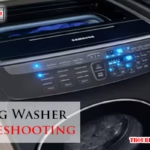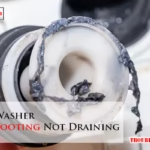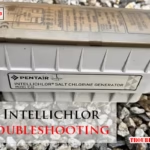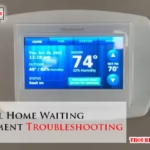Is your Thermo King unit giving you trouble? Whether you’re dealing with inconsistent cooling, strange noises, or error codes you can’t decode, it can feel frustrating and overwhelming, especially when your cargo depends on it.
But don’t worry—you’re not alone, and you’ve come to the right place. This troubleshooting guide is designed to help you pinpoint common issues, understand what’s happening, and decide on the best course of action. No technical jargon, no complicated steps—just clear, actionable advice to get your Thermo King equipment back on track.
If you want to save time, reduce stress, and avoid costly breakdowns, keep reading. By the end of this guide, you’ll feel more confident handling whatever your unit throws your way.
Common Issues With Thermo King Units
Thermo King units are the backbone of refrigerated transportation, keeping perishable goods fresh and safe. However, like any complex machinery, they can encounter problems that disrupt their functionality. Understanding common issues can save you time, money, and frustration, ensuring your unit operates smoothly when it matters most.
1. Low Refrigerant Levels
Low refrigerant levels are a frequent culprit behind poor cooling performance. If your unit isn’t maintaining the right temperature, check the refrigerant first. Look for leaks in hoses, fittings, or connections, as these are common sources of the problem.
Running a unit on low refrigerant can damage the compressor over time. Make it a habit to inspect refrigerant levels regularly. This small step can prevent costly repairs down the line.
2. Faulty Thermostat
Is your unit struggling to maintain a consistent temperature? A malfunctioning thermostat might be the issue. When the thermostat fails, it can send incorrect signals to the cooling system, causing temperature fluctuations.
Replace faulty thermostats promptly to avoid compromising the integrity of your cargo. Always ensure the thermostat is calibrated correctly after replacement.
3. Electrical Problems
Electrical issues can be tricky to diagnose but are often linked to loose connections or corroded wires. A unit that won’t start or runs inconsistently may be experiencing an electrical fault.
Inspect the wiring harness and battery connections for visible damage or corrosion. Clean and tighten the connections before testing the unit again. Regular maintenance can help catch electrical issues early.
4. Dirty Condenser Coils
Over time, dirt and debris can accumulate on the condenser coils, reducing efficiency. Dirty coils make it harder for the unit to release heat, leading to higher energy consumption and uneven cooling.
Clean the condenser coils with compressed air or a soft brush periodically. This simple maintenance task improves performance and extends the life of your unit.
5. Engine Troubles
Thermo King units rely on small engines to power their systems, and engine problems can bring everything to a halt. Common issues include fuel system clogs, low oil levels, or worn-out belts.
If the engine won’t start or runs rough, check the fuel filter and oil levels first. Always use the recommended oil grade and replace filters during routine service to keep the engine running smoothly.
6. Alarm Codes And What They Mean
Thermo King units are equipped with alarm codes that alert you to specific problems. These codes can feel cryptic if you’re unfamiliar with them, but they’re your unit’s way of communicating its needs.
Keep a copy of the alarm code guide handy to quickly identify issues. For example, an alarm code for high discharge pressure often points to a blocked airflow or a failing condenser fan.
Have you encountered any of these issues with your Thermo King unit? What steps did you take to resolve them? Share your experiences in the comments below, and let’s help each other keep these vital units running efficiently!
Credit: helpcenter.gomotive.com
Diagnosing Temperature Control Problems
Temperature control issues can disrupt the efficiency of your Thermo King unit. These problems often affect cargo safety and product quality during transport. Identifying the root cause is key to restoring optimal performance. This guide will help you diagnose common temperature control issues.
Inconsistent Cooling
Inconsistent cooling is a frequent issue in refrigeration units. Check for blocked air filters, as they reduce airflow and cooling capacity. Inspect the condenser coils for dirt or debris. Dirty coils hinder heat transfer and cooling efficiency. Ensure the refrigerant levels are adequate. Low refrigerant can lead to uneven temperature control.
Overheating Units
Overheating units often indicate mechanical or airflow problems. Verify the unit’s ventilation system is not obstructed. Check the compressor for signs of wear or damage. Malfunctioning compressors can cause overheating. Examine the electrical components for loose connections. Faulty wiring can lead to excess heat build-up.
Faulty Thermostats
Faulty thermostats can make maintaining the desired temperature difficult. Test the thermostat accuracy using an external temperature gauge. Replace the thermostat if readings are inconsistent or incorrect. Inspect the thermostat wiring for corrosion or damage. Poor connections can interfere with proper functioning.
Electrical System Failures
The electrical system in your Thermo King unit plays a critical role. It powers key components and ensures efficient operation. When faults occur, they can disrupt the cooling performance. Understanding common electrical failures can help you diagnose and fix issues quickly. Let’s explore the most frequent problems.
Battery Malfunctions
A faulty battery is a common cause of electrical failures. Check if the battery is fully charged and free of corrosion. Loose connections can also prevent the battery from working properly. Inspect the terminals and cables for damage. Replace the battery if it fails to hold a charge.
Blown Fuses
Blown fuses can interrupt the electrical flow in your system. Locate the fuse box and inspect each fuse carefully. Replace any blown fuses with the correct type and rating. Frequent fuse failures could indicate a deeper electrical issue. Seek professional help if this happens repeatedly.
Wiring Issues
Damaged or loose wiring can cause electrical problems in your unit. Inspect all visible wires for frays, cuts, or disconnections. Vibrations during transport can loosen connections. Tighten any loose wires and replace damaged ones immediately. Poor wiring can lead to serious malfunctions if ignored.
Refrigerant Leaks And Pressure Problems
Refrigerant leaks and pressure problems are common issues in Thermo King units. These problems can disrupt cooling efficiency and lead to costly repairs. Understanding the signs and troubleshooting these issues early can save time and money. This section provides practical advice to help identify and resolve these challenges.
Detecting Refrigerant Leaks
Refrigerant leaks can cause cooling performance to drop significantly. Inspect the unit for oily residue around hoses, fittings, or the compressor. This residue often indicates a leak. Use a leak detection tool to pinpoint the exact location. Electronic detectors or UV dye kits are effective options for this task.
Listen for hissing sounds near connections or hoses. This sound may indicate escaping refrigerant. Regular inspections can help catch leaks before they worsen. Always handle refrigerant carefully and follow safety guidelines during repairs.
Low Refrigerant Pressure
Low refrigerant pressure can strain the system and affect cooling. Check the pressure levels using the unit’s gauges. Compare the readings to the manufacturer’s recommended range. If the pressure is too low, it could indicate a leak or insufficient refrigerant.
Avoid overcharging the system during refills. Excess refrigerant can cause high pressure and damage components. Always refer to the manual for the correct refrigerant type and quantity.
Compressor Troubles
The compressor plays a vital role in refrigerant circulation. If it malfunctions, the cooling process may stop. Listen for unusual noises like clanking or grinding from the compressor. These sounds may indicate internal damage.
Inspect the compressor for visible signs of wear or damage. Ensure the electrical connections are secure and functioning. If the compressor fails, seek professional assistance to avoid further system damage.
Engine And Fuel System Troubles
Thermo King units rely on a robust engine and fuel system. These systems keep your refrigeration unit running efficiently. Issues with either can lead to costly downtime or spoiled cargo. Knowing how to troubleshoot common problems is crucial for maintaining operations. Below, we explore frequent challenges and their potential fixes.
Engine Not Starting
An engine that won’t start can disrupt your schedule. First, check the battery connections. Loose or corroded terminals can prevent the engine from starting. Ensure the battery has sufficient charge for the unit. Examine the starter motor and ignition switch for wear or damage. Faulty components in these areas may also cause startup problems.
Fuel System Blockages
Fuel blockages can starve the engine and reduce performance. Inspect the fuel lines for cracks or leaks. Dirt or debris in the fuel filter may restrict flow. Replace clogged filters to restore proper functionality. Clean the fuel tank if contaminants are present. Regular maintenance reduces the risk of blockages and ensures smooth operation.
Excessive Fuel Consumption
High fuel usage increases operational costs. Inspect the air filter for dirt or clogs. A dirty filter forces the engine to burn more fuel. Check for fuel leaks in the system. Even small leaks can cause noticeable fuel loss. Ensure the engine is properly tuned for optimal efficiency. Poorly maintained engines often consume more fuel than necessary.

Credit: discover.hubpages.com
Sensor And Alarm Errors
Dealing with sensor and alarm errors on your Thermo King unit can feel overwhelming, especially when you’re facing a tight delivery schedule. These errors, however, are often easier to fix than they seem. With the right approach, you can save time, avoid costly repairs, and keep your cargo at the perfect temperature.
Faulty Temperature Sensors
Temperature sensors play a vital role in maintaining the right conditions inside your refrigerated trailer. But when they fail, your unit may struggle to hold the setpoint or throw error codes. A quick way to check for faulty sensors is to compare the displayed temperature against an external thermometer.
If the readings don’t match, inspect the sensor for damage or dirt buildup. A loose connection can also cause inaccurate readings. Secure the wiring and clean the sensor to see if that resolves the issue before considering a replacement.
Alarm Code Interpretations
Thermo King units generate alarm codes to alert you when something is wrong. These codes can pinpoint issues with sensors, refrigerant levels, or even the fuel system. Knowing how to interpret them is key to fast troubleshooting.
For example, Alarm Code 10 often indicates a problem with the return air temperature sensor. Alarm Code 20 might signal a refrigerant issue. Always refer to your Thermo King manual for the specific meanings of each code to avoid guessing.
Keep a cheat sheet of common alarm codes and their fixes in your truck. It can save you time and reduce stress during urgent hauls.
Resetting Alarm Systems
Resetting the alarm system is sometimes all it takes to get your unit back on track. This can clear temporary glitches caused by power interruptions or system hiccups. But it’s crucial to address the root cause before hitting reset.
To reset, turn off the unit and wait for a few minutes. Then, restart it and check if the alarm persists. If the issue remains, it’s a sign you need a deeper inspection or professional help.
Have you ever ignored an alarm code, thinking it was minor, only for it to turn into a bigger issue later? Don’t make that mistake. Take every alarm seriously, even if it seems small.
Addressing sensor and alarm errors doesn’t have to derail your day. With these actionable tips, you can handle most issues quickly and confidently. What’s the most challenging error you’ve faced so far? Share your experience below!
Routine Maintenance Tips
Keeping your Thermo King unit in peak condition doesn’t have to feel overwhelming. Routine maintenance is your secret weapon for avoiding unexpected breakdowns and costly repairs. By focusing on a few key areas, you can extend your unit’s lifespan and ensure it operates efficiently.
Cleaning Condenser Coils
Dirty condenser coils can wreak havoc on your Thermo King’s performance. Dust and debris act like insulators, trapping heat and making the system work harder than it should.
Grab a soft brush or compressed air to carefully clean the coils. Make sure the unit is powered off before you start. A clean coil ensures proper heat exchange, reducing strain on the compressor.
How often do you check your coils? Ideally, this should be done every month, especially if your unit operates in dusty environments.
Checking Belts And Hoses
Belts and hoses are the lifeline of your Thermo King unit. A worn belt can snap without warning, leaving your system out of commission.
Inspect belts for cracks or fraying edges. If you notice wear, replace them immediately to avoid downtime. Run your fingers along the hoses to check for leaks or soft spots, which can indicate damage.
Make it a habit to inspect these components every three months. This simple step can save you from unexpected repair bills.
Inspecting Airflow Components
Blocked airflow components reduce cooling efficiency and force the unit to work harder. This not only increases energy consumption but can also lead to overheating.
Check the evaporator and air filters for dust buildup. If the filters are clogged, swap them out for new ones. Good airflow is critical to maintaining temperature consistency.
Have you noticed uneven cooling lately? It might be time to inspect these components more closely and ensure they’re free of obstructions.
Routine maintenance doesn’t have to be a chore. By cleaning condenser coils, checking belts and hoses, and inspecting airflow components, you’re taking proactive steps to keep your Thermo King unit running smoothly. What’s the next maintenance task on your list?

Credit: www.scribd.com
When To Call A Professional
Sometimes, your Thermo King unit might need more than a quick fix. While DIY troubleshooting can solve minor problems, certain situations require the expertise of a trained technician. Knowing when to step back and call a professional can save you time, money, and frustration.
Complex System Failures
Thermo King units are intricate machines with many interconnected parts. If the problem involves the electrical system, refrigerant leaks, or sensor malfunctions, it’s time to seek professional help. These issues often require specialized tools and diagnostic equipment that aren’t readily available.
Attempting to fix complex failures yourself can lead to more damage. For instance, misdiagnosing a wiring issue could cause further electrical problems down the line. A technician has the training to pinpoint the exact cause quickly.
Persistent Issues
Have you fixed the same problem more than once, only for it to pop up again? Persistent issues might indicate a deeper problem. A refrigerant leak, for example, may seem minor at first but could snowball into compressor failure if ignored.
Let’s say you’ve repeatedly reset the unit to clear an error code, but the code keeps returning. This could mean the underlying issue hasn’t been resolved. A professional can dig deeper and find the root cause, ensuring your unit runs smoothly long-term.
Warranty Considerations
Did you know that attempting repairs yourself might void your Thermo King warranty? Many warranties require repairs to be done by certified technicians. Always check the terms of your warranty before jumping into a repair.
If your unit is still under warranty, calling a professional isn’t just a smart choice—it’s often a requirement. This ensures you won’t end up footing the bill for repairs that could have been covered.
When deciding whether to call a professional, ask yourself: Is this beyond my expertise? Will DIY repairs risk further damage or void my warranty? Sometimes, the smartest move is picking up the phone and letting an expert take over.
Conclusion
Regular maintenance keeps Thermo King units running smoothly. Troubleshooting issues early prevents costly repairs. Follow the guide to identify common problems. Addressing them quickly ensures better performance and reliability. Always use proper tools and safety measures during inspections. For complex issues, consult a professional technician.
A well-maintained unit extends lifespan and reduces downtime. Keep this guide handy for future reference. Reliable refrigeration starts with proper care and attention.





